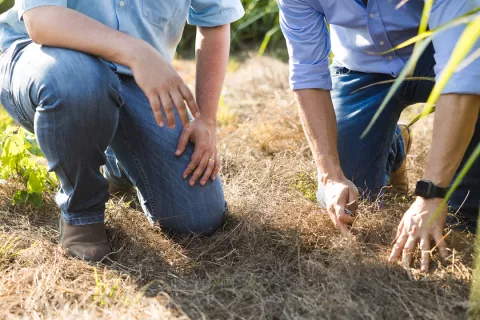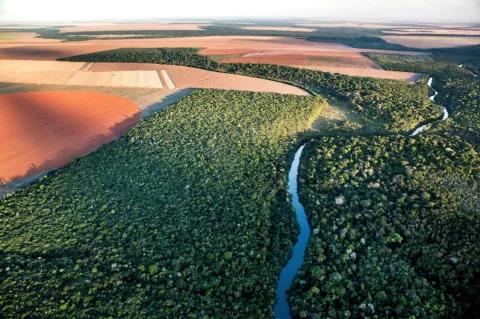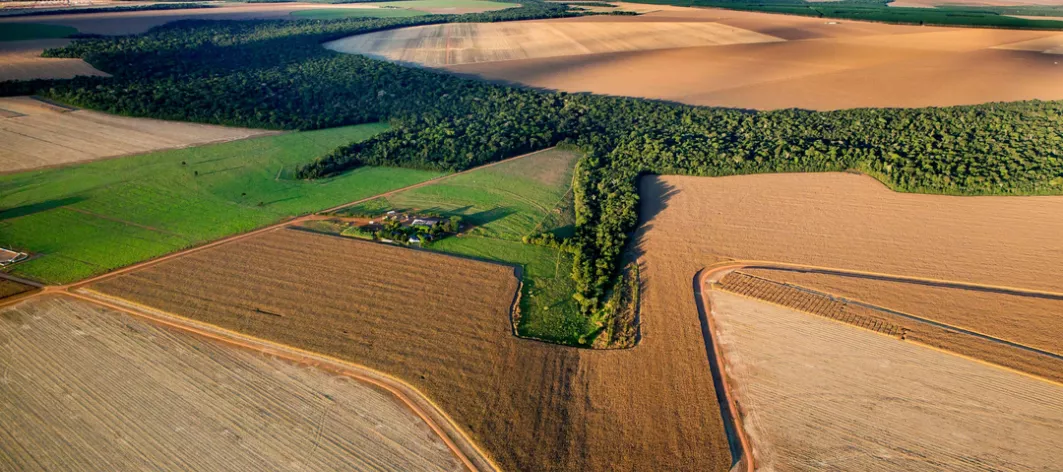
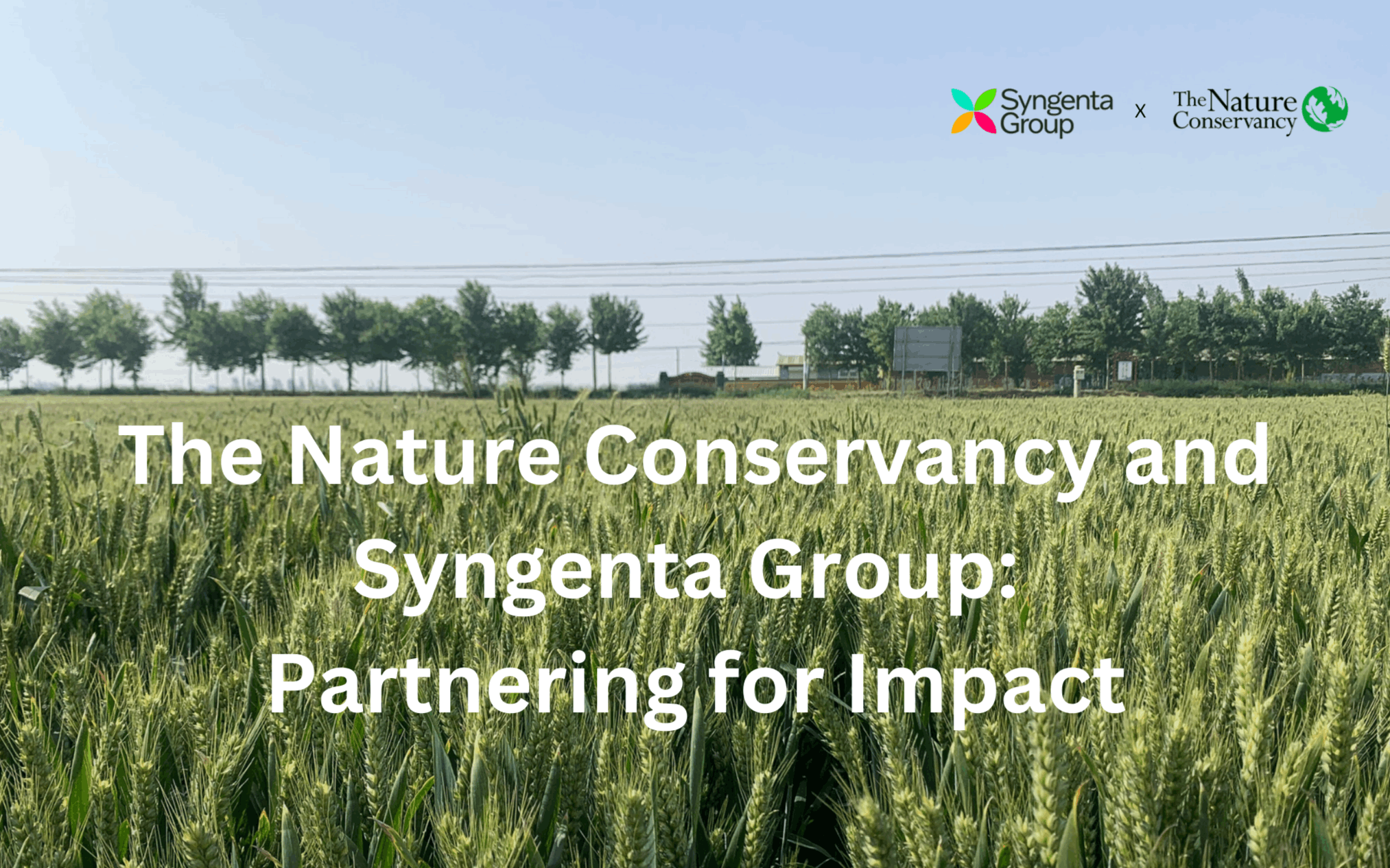
At Syngenta Group, we believe the food that feeds the world can also help to improve it.
But we can’t do this alone.
That’s why collaboration is at the heart of everything we do, none more so than in our sustainability efforts.
We know that working in partnership with key stakeholders is the only way to create more sustainable food systems.
That’s why we’re committed to our long-term collaboration with The Nature Conservancy (TNC), linking our R&D capabilities and agricultural know-how to TNC's scientific and conservation expertise.
We have been working with TNC over many years to combine conservation efforts and economic potential to addresses societal issues like deforestation and land degradation.
Collaboration milestones
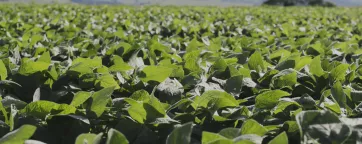
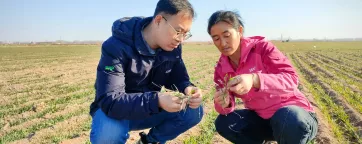
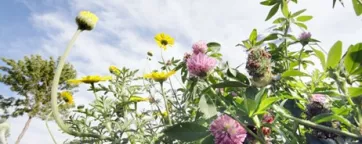
- Identified and assessed the market size of high-impact opportunities for Syngenta to advance sustainability in key areas with Bain and pro-bono support from TNC.

- REVERTE® launched, fostering a sustainable farming system to drive soy expansion in degraded pastureland in Brazil.
- Public launch of collaboration and our commitment to invest $2bn into sustainable innovation by 2025.
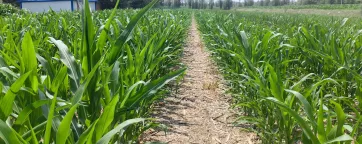
- Feed in Focus launched, developing a toolset to scale the adoption of BMPS in feed/forage production and feed efficiency for dairy farming.
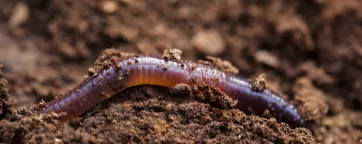

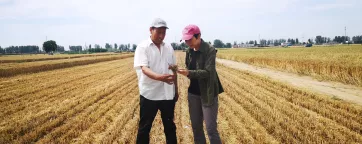
Working together, our global projects are bringing a more sustainable future to life.
Building on our success and the lessons we’ve learned from our joint projects, we will focus on key strategic initiatives across Brazil, China and US.

REVERTE®: transforming degraded soil in Brazil’s Cerrado
Developed together in 2019, the initiative helps restore degraded pasturelands in Brazil by offering farmers agronomic techniques and long-term financing.
By making it economically viable for growers to recover degraded land instead of planting in new areas, the program helps to preserve native vegetation and support the advancement of regenerative agriculture.
REVERTE®’s initial focus was the Cerrado in Brazil - a vast subtropical region the size of France, Germany, Spain, Italy and Norway combined.
Almost 18 million hectares of the region’s biome either lie barren or are low-productive pastureland - an enormous opportunity to conserve the Cerrado’s habitats.
Syngenta Group’s goal is for 1 million hectares of degraded pastureland to be recovered and turned into productive areas throughout Brazil by 2030. A significant portion of that will be in the Cerrado, where we are working together with TNC.
As of March 2024, more than 250 farms have signed up to the program, with a total of 180 thousand hectares of degraded soil in the recovery process.
Of these, 115 thousand are in the Cerrado biome.
Our collaboration with TNC is focusing on this biome, but such is the demand from farmers to scale the initiative, Syngenta Group is now exploring how to support growers in other parts of Brazil and elsewhere in the world.
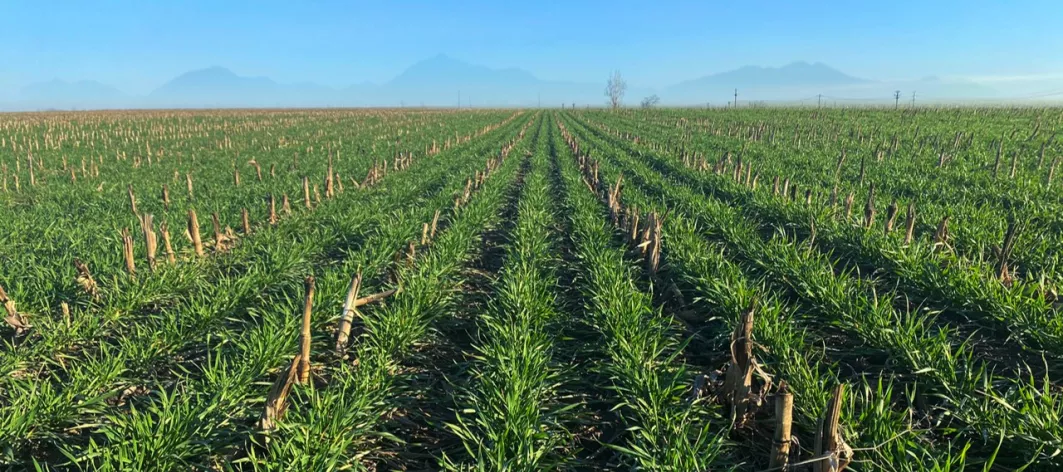
Run Tian Project: advancing soil health in North China
By equipping farmers with the knowledge they need to implement regenerative agriculture practices on their farms, the project aims to restore soil health in the Huang
Huai-Hai region - the largest wheat producing area in China.
Working with government entities and academia, we are showing farmers how to enhance the health of their soils, demonstrating the economic and agronomic viability of reduced or no-till field management.
As of April 2024, the initiative has impacted directly 2,400 hectares of agricultural soils.
More than 17,000 farmers have been trained on regenerative agricultural practices, leading to increases in yields by 4 percent and net benefit USD 360 per hectare.
Moving forward, Run Tian Project will develop new business strategies to further improve soil health, supporting farmers to protect the soil ecosystem, leveraging Syngenta Group’s fast-growing network of Modern Agriculture Platform (MAP) centres to promote sustainable farming practices.
The MAP offering helps farmers modernize their farms sustainably, while boosting crop quality, yield and farm profitability.
As part of Syngenta Group’s recently published Sustainability Priorities, the company has a target to expand the number of farmer service centres to 1,000 by 2028.

Enhancing the climate resilience of crop land in the United States
In 2024 our partnership announced two new projects to enhance the climate resilience of crop land in the United States.
By unlocking diverse crop rotations with sustainable sorghum production, the first project aims to reduce the pressure on water resources from on-farm activities.
At the same time, we aim to scale regenerative agriculture practices with seeds producers in the US, as part of our broader work to implement regenerative agriculture across seed production.
This will bring new business value to farmers and reduce the environmental footprint of the seeds supply chain, while preserving the quality of Syngenta Group’s seeds.
Want to know more?
